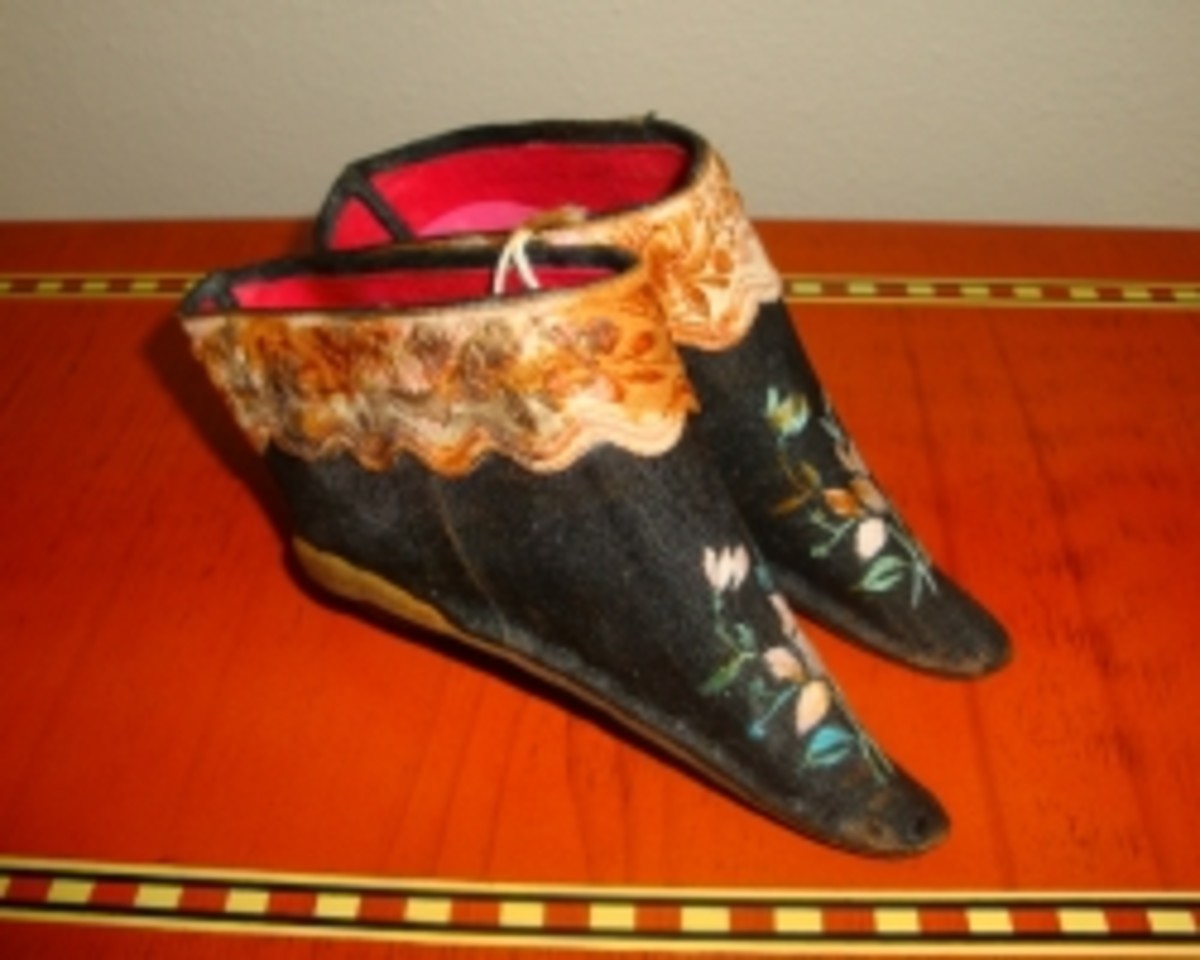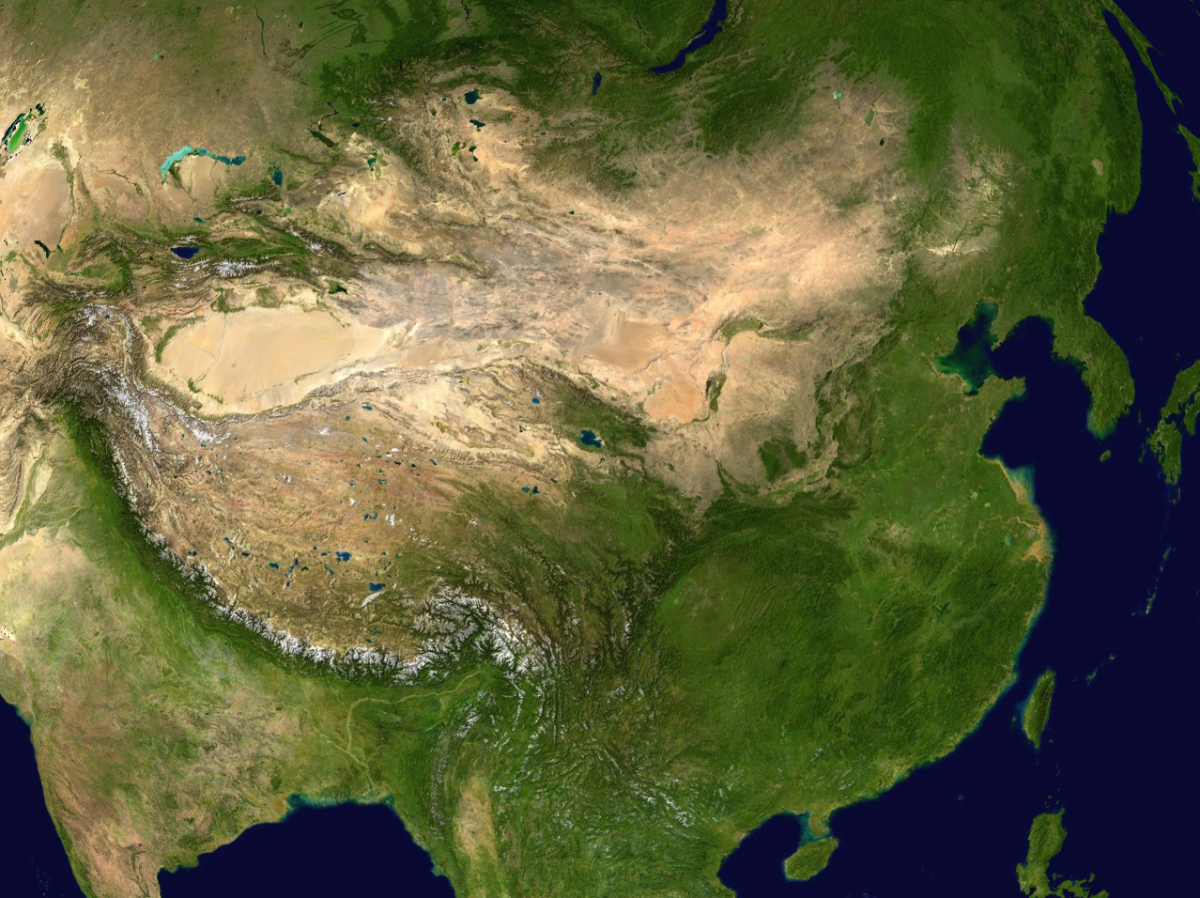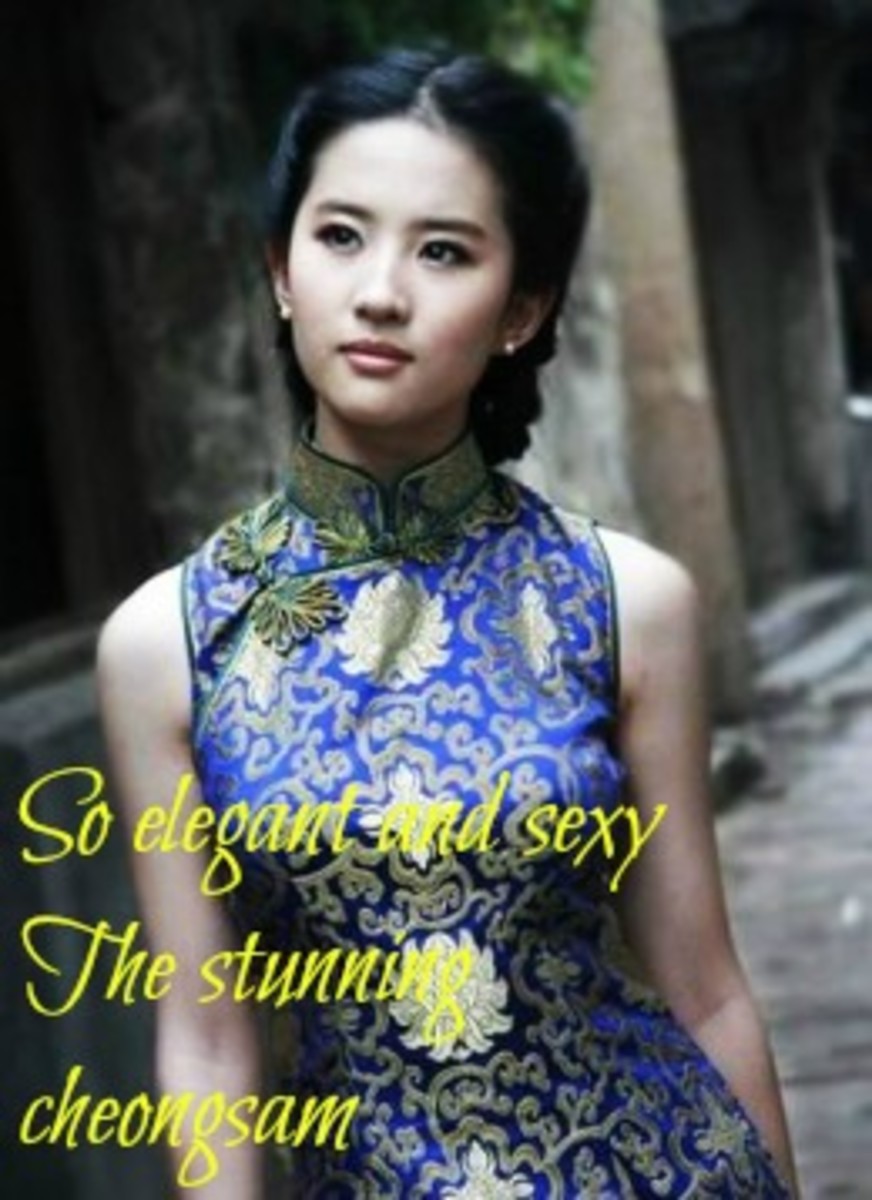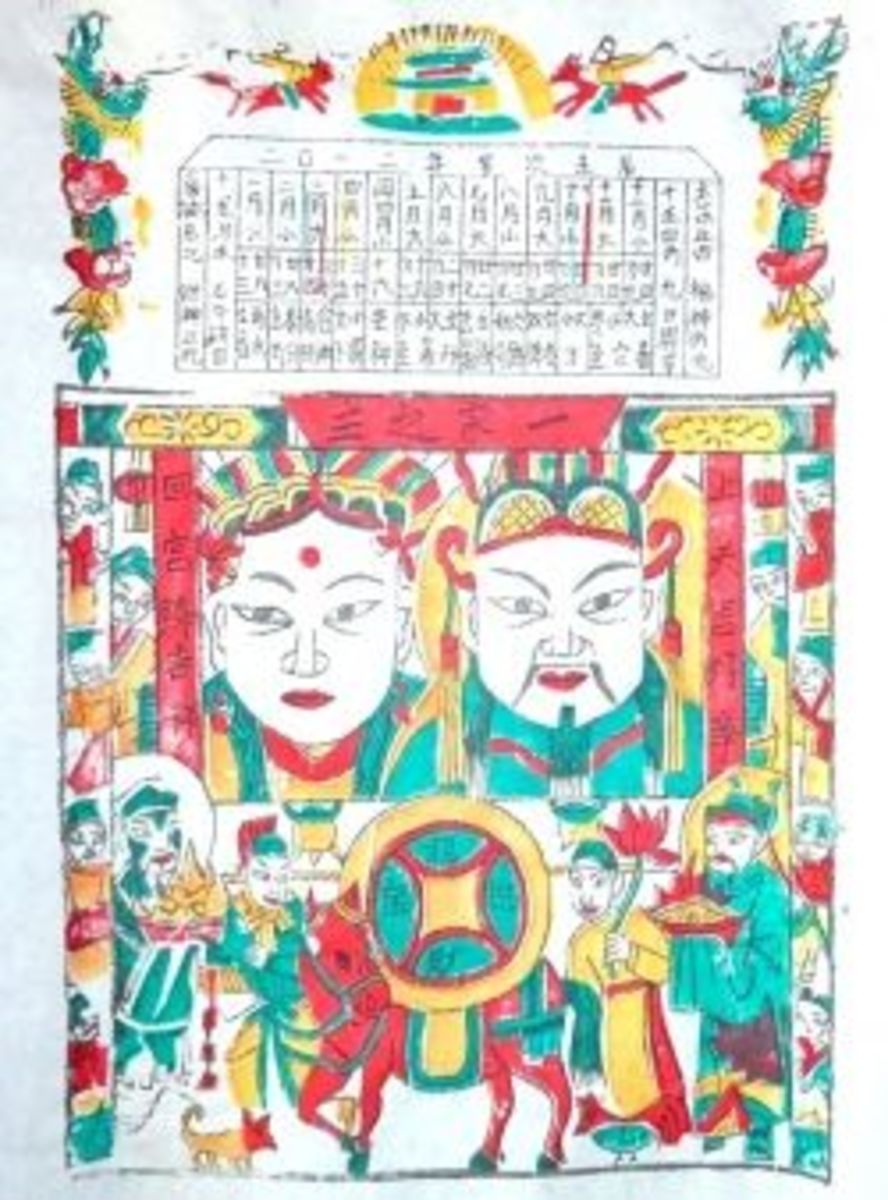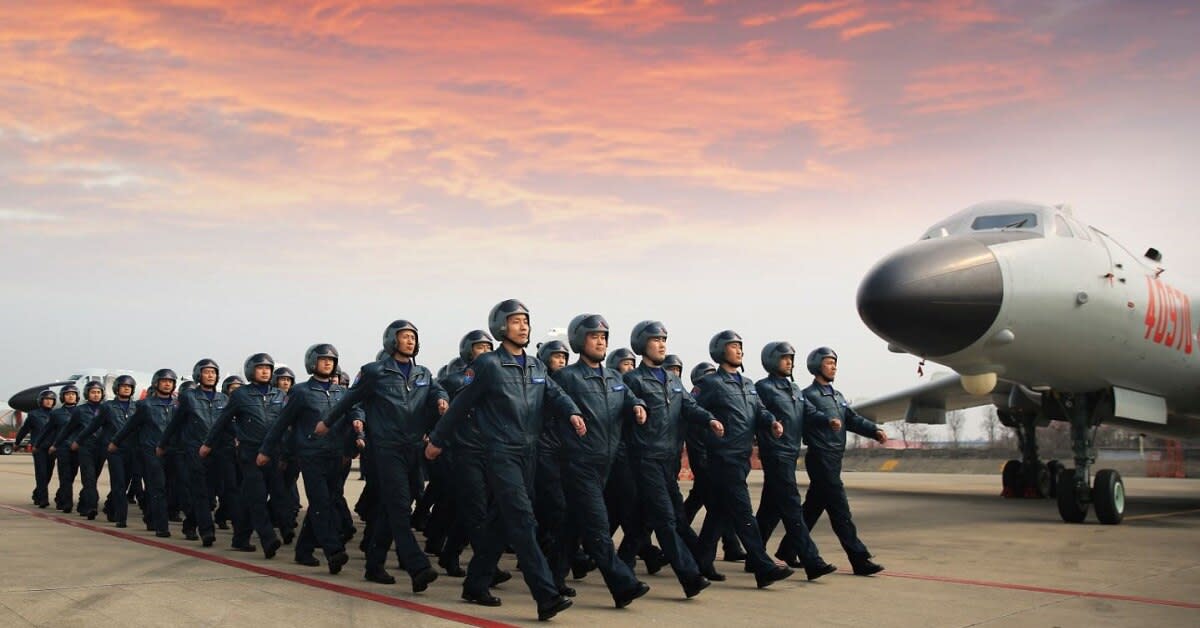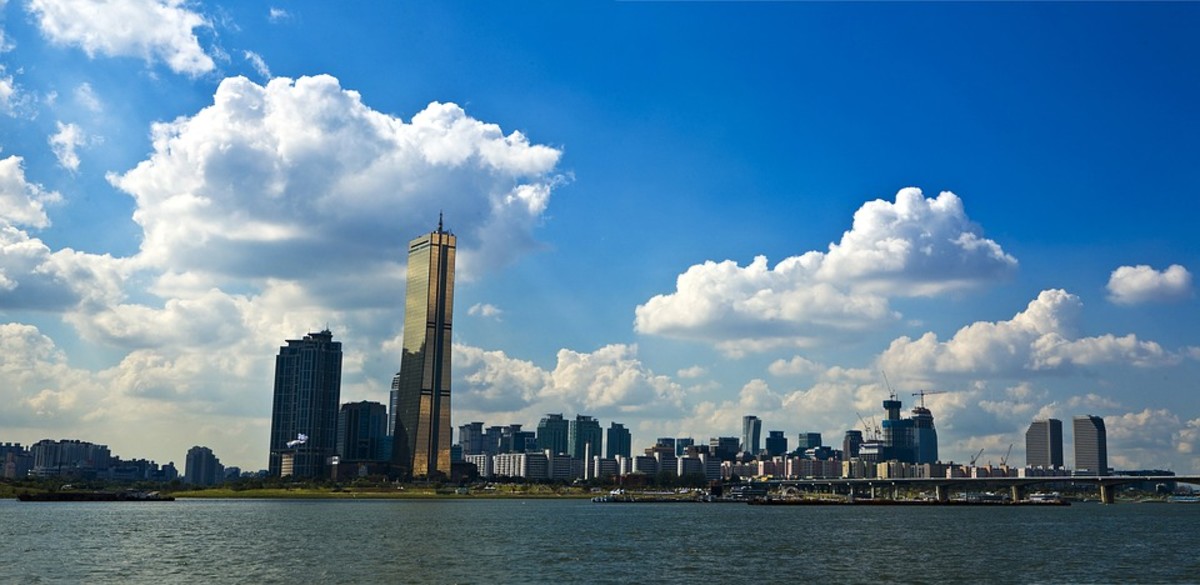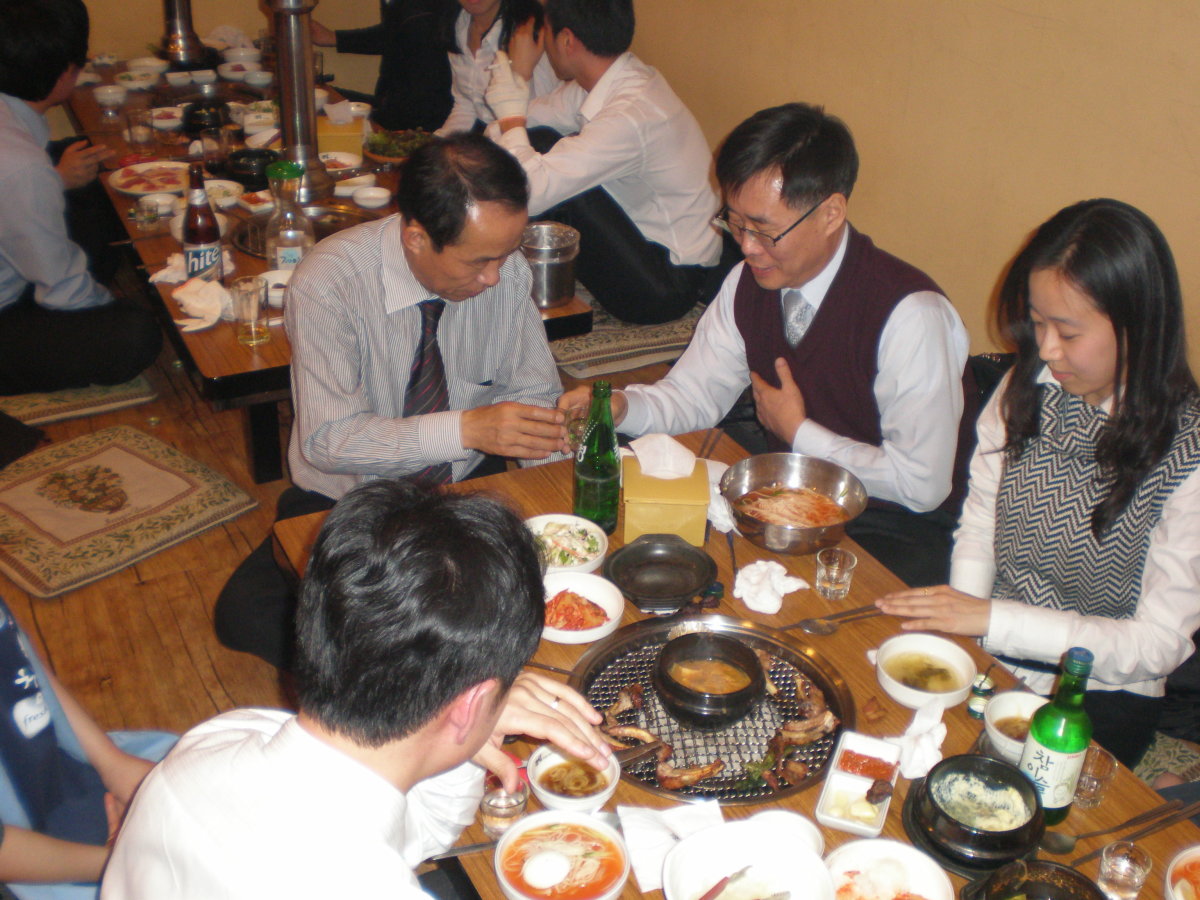Some Chinese Oddities
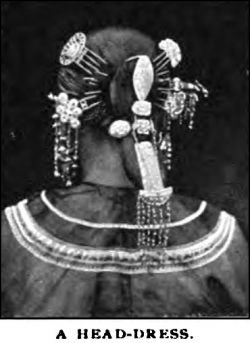
From January 1901 issue of "Cosmopolitan" magazine
Dr. Francis E. Clark (1851-1927) is best known as a Congregationalist pastor from New England and founder of the Christian Endeavor movement which encouraged young people to get involved in community service projects and serve as missionaries overseas. Dr. Clark toured the globe to promote the Christian Endeavor Society and along the way, in a variety of books and magazine articles, he chronicled the world as he saw it at the very beginning of the 20th century, a time when the process of Westernization, spurred by the promise of newfangled inventions such as the telephone and the automobile and the electric light, had only begun to penetrate Oriental cultures shrouded in centuries of tradition. In this rare look at women's fashions in old China, Clark finds some remarkable examples of Chinese headgear that the reader really must see to believe. We suspect that we would not be far wrong in speculating that many of these hair fashions have faded out of memory of most modern Chinese women. However, the existence of these fashions extremes perhaps helps to explain the reactionary preference in modern China for fashion uniformity. Modern freedom from this type of fashion extreme would seem a good thing in retrospect.
Dr. Clark says:
QQUEER things about China are not the stock contradictions of Western life and manners which are so often rehearsed-like the fact that a Chinaman begins at the back of his book to read it; that he reads from right to left instead of from left to right; that the carpenter pulls his plane toward him instead of pushing it from him — for these are not idiosyncrasies except from the Western standpoint.
Golden Lilies: The Chinese practice of foot finding
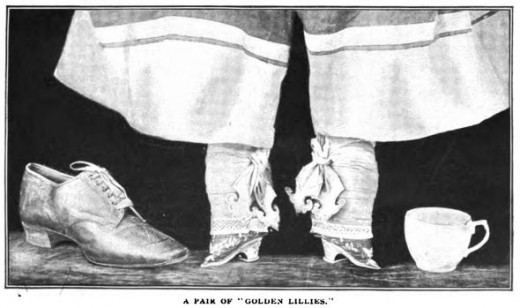
But there are other oddities which seem to have very little reason for existence either from the Oriental or the Occidental standpoint, and must be put down to the unexplained and inexplicable working of the Eastern mind. Yet most of these oddities are the results of immemorial custom and fashion, and perhaps can be explained as easily as the freaks of Dame Fashion in Western Longitudes. Here, for instance, are a pair of bound feet of a high-class Chinese lady; her "golden lilies," as she calls them. This pair of shoes actually measures one and one-half inches in length.
The tea cup by the side of one of these ''golden lilies" is a small one, and the Western shoe on the other side belongs to an exceptionally petite missionary lady, in whose shoes few of my readers could walk. The bones of the bound feet are crushed out of all semblance to a human foot, and in the smallest shoes only the point of the great toe can enter. I have heard small Chinese girls screaming in pain as their grandmothers compressed their tender little feet and crushed the bones to a jelly.
For hours at a time the torture is endured, until, at last, the foot becomes numb and painless and almost paralyzed, and henceforth the little maiden, however long she lives must totter around on her toes, leaning upon the shoulder of an attendant or carrying a stick in either hand to support her feeble footsteps.
Nevertheless, the pain is voluntarily endured, and with such a ruthless hand does Dame Fashion rule in China that these same children, even in the midst of the torture which wrings from them many a cry of anguish, will insist on having the process continued until their feet are hideously deformed and practically useless as a means of locomotion, rather than run counter to the dictates of fashionable tradition, and lose their chance for eligible husbands in future years.
Chinese foot binding
Fashion run amok on Chinese heads
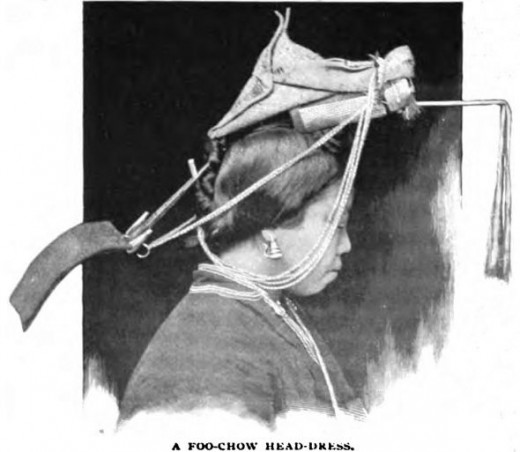
The head-dresses of the women in many parts of China are as curious as their foot-gear. The rest of their garments are thoroughly sensible and might well be copied by the dress reformers throughout the world, for their loose trousers enable them to do their work in the most convenient and expeditious way. But over their feet and heads common sense seems to have lost its sway, and extravagance and oddity run riot. Some women of Foo-Chow seem to carry a whole arsenal in their back hair, and though of the mildest and gentlest character, the knives and daggers with which they adorn their locks, give them a dangerous aspect to Western eyes.
Extravagant flower garden bouffants adorn Manchu heads
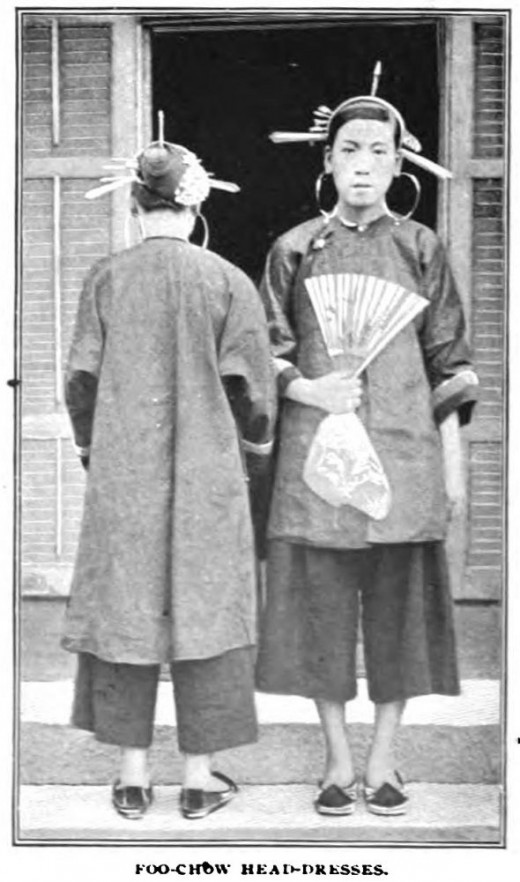
The head-gear of the Manchu women in North China is peculiarly striking and picturesque. In a fearful and wonderful manner the hair is puffed and pleated and filled with bouquets of artificial flowers until every Manchu woman appears to carry on her head a very considerable flower garden. But the carriage of these Manchu women is so erect, the confidence with which they walk upon their broad, unbound feet is so refreshing after the mincing gait of the Chinese women of high caste, that one is willing to forgive any kind of extravagance in their head-dresses because of the good sense with which they dress the other end of their anatomy.
The importance of an ornate funeral car
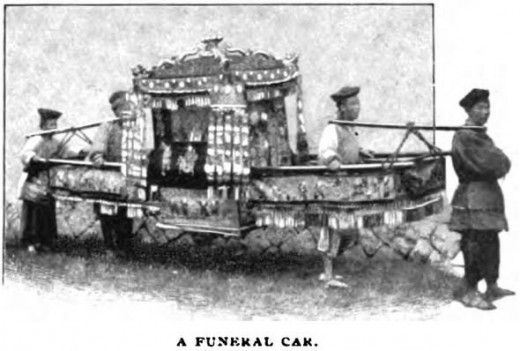
It is in his funeral services that the Chinaman indulges his propensity for extravagance and oddity to the utmost. A rich Chinaman in Tientsin recently expended one hundred and fifty thousand dollars on the funeral of his mother, and laid up for himself immense stores of credit on the other side of the Styx. Forty millions of dollars worth of paper cash, it is said, are binned every year in China at the graves of ancestors, and an incredible amount of paper cash can be bought for a cent. Yet lavish as the Chinaman is in his expenditure upon the dead, he will often leave a coffin waiting for a year or for ten years in an exposed position by the roadside until the necromancers shall tell him the propitious hour and place to bury his dead. In some places he buries the remains, or at least what is left of them after years of dissolution, in earthen pots where thousands can be stowed away in a very small enclosure.
One of these strange burial places is here pictured. It was encountered quite by the wayside and is evidently carefully looked after.
The funeral processions in the streets of the great cities of China are often exceedingly inconvenient to the passing traveler. All traffic must make way for the Car of Death, and in the narrow streets of the southern cities a stranger must crowd himself into the narrowest possible compass, squeezing into a doorway or obliterating himself as far as possible against a wall, until the mourners have passed through the street.
In Peking, where the streets are wider, the catafalque is often built in the middle of the roadway, and is left there for days and weeks, filling up the middle of the street and obliging every passing camel and donkey, and rattling, creaking cart to take some other avenue, or to crowd by on the sidewalk, under the awnings, to the discomfiture of foot passengers and the various open-air venders who do their business on the sidewalk.
The absurdity and inconvenience of thus giving the dead the right of way never seems to strike the average Pekingese.
This is all of a piece with the national love of funeral display, and heartless crocodile tears, as they seem, at least, to Western eyes. An immense trumpet is even used sometimes which is worked like a garden pump to sob out the "boo hoo" of the afflicted relatives. The more unearthly and heartrending its sobs, the better they seem to be pleased. For a great funeral, all the beggars and ragamuffins and impudent small boys in the vicinity are hired. They are decked out in tawdry clothes, or perhaps their rags are not even disguised in any way, but they are at least given banners to carry and are hired to wail and sob as if their hearts were breaking. The dull, indifferent, stolid faces of the men, and the roguish, mischievous smiles on the boys' faces belie their wails, and give a very unreal air of hypocritical sorrow to the average Chinese funeral, though doubtless there is much genuine sorrow and as many real heartaches as in other lands.
More about Chinese funeral customs
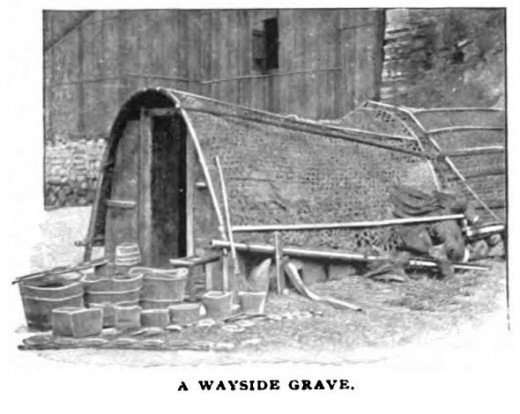
When the coffin is borne in the funeral procession, it is often covered up with all sorts of grotesque pasteboard counterfeits of the things which the departed is likely to want in his future journeys in the land beyond. A mock house and a mock horse are often thus carried, a paper cow to furnish milk and meat, paper fowls to lay eggs for him and paper servants to do his bidding. Oftentimes, too, a tempting array of real viands are carried in the procession, a roast pig, a dozen roast ducks, bread and rice and fruit. They are not left to "waste their sweetness on the desert air," but after they have remained at the grave's mouth for a little while, and the spirits have sniffed the delicious odors, they are divided up among the sorrowing relatives and friends, who have such a feast as many of them have not enjoyed for days.
Sometimes, however, there seems to be a genuine sacrifice of actual provisions. On one occasion, when journeying from Hong Kong to Shanghai, our steamer approached the latitude and longitude where eighteen years before a ship had been wrecked and hundreds of Chinese passengers lost. Going on deck, I found the air filled with leaves of mock money which had been set on fire and scattered to the winds. Upon the lower deck, on a raised platform, was a whole pig, roasted crisp and brown, flanked on both sides by dishes of rice and bottles of wine and baskets of oranges. A gorgeously arrayed priest went through with many genuflections and incantations, and then, with the assistance of his subordinates, carried the pig to the rail where he slid it off into the briny waters. The rice was thrown after the pig. the wine after the rice, and the oranges followed the wine, while all went bobbing off astern as the steamer went on her way, leaving behind her the offering for the shades of the poor, shipwrecked mariners of nearly a score of years before.
The Widow's Arch memorializes a virtuous widow by edict of the emperor
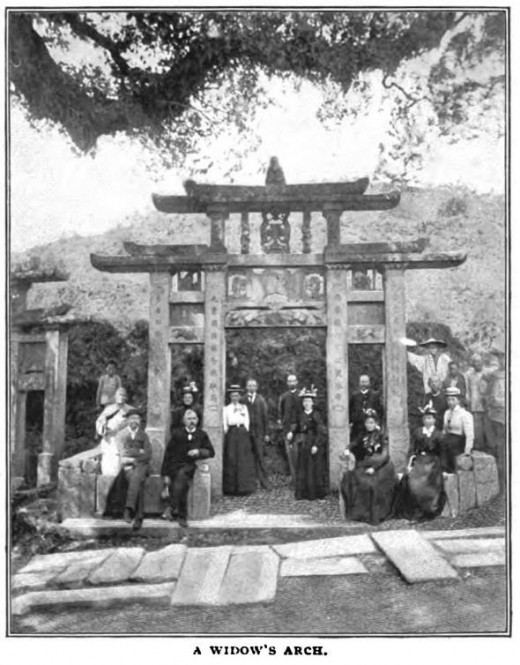
The Widow's Arch is a characteristic of Southern China which one sees in no other part of the world. A virtuous widow who never marries again is an object of special veneration and honor. After her death, at the request of her relatives, the Emperor will issue a special edict allowing them to erect a stone arch in her memory. These often cost thousands of dollars, and are inscribed in characters that tell of her virtues. From the arch, her family, down to the remotest generation, receives a kind of post-mortem glory.
How the Chinese treat their prisoners
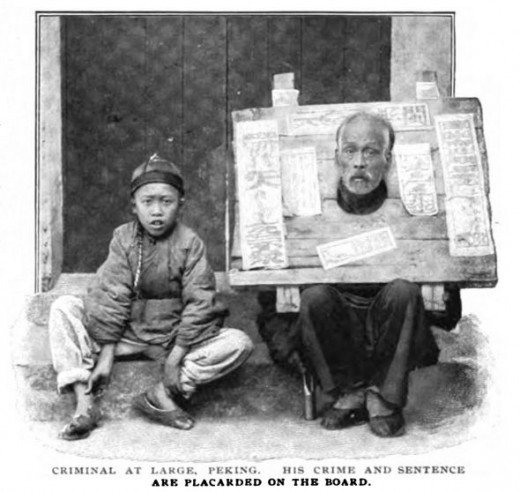
The treatment of prisoners in China, though an oddity to Western eyes, is not by any means illogical or absurd. The poor fellow is encased in a heavy board frame, through a hole in which his face protrudes like a ghastly and imbruted living picture in the middle of a very rough border. Around his face, below and above and on both sides, arc characters which tell the crime for which he is punished, the length of the sentence, and so forth. Thus prison bars are dispensed with, and guards, and all the paraphernalia of the Western jail, for the poor fellow cannot run away, and so is allowed to go at large carrying the story of his crime with him.
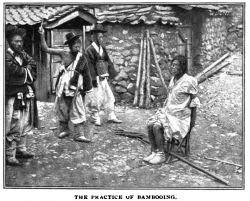
The bambooing of the Chinese prisoner
The whipping-post has not been abandoned in China, but is still the favorite means of punishment. Oftentimes the poor criminal must fall upon his hands and knees to be spanked with a bamboo in a most humiliating and degrading fashion. A still more painful mode of punishment is to seat him in a chair, to bare his legs to the knees, and then allow the executioner to inflict a hundred strokes of the cat upon his bare shins.
Ways of getting around in old China
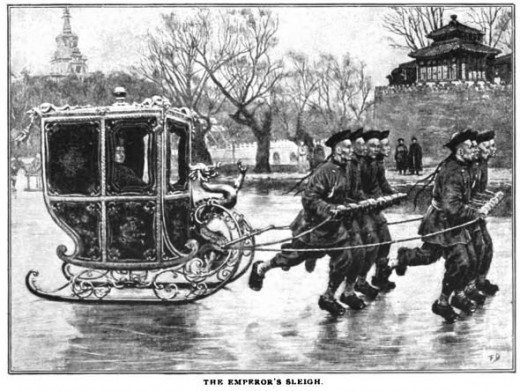
Locomotion in China presents about as many oddities as any other feature of national life. The jinrikisha has begun to usurp the wheelbarrow in Shanghai, but it will be many a century, at the present rate of progress, before it is entirely supplanted, because wheelbarrow rides have the advantage of being almost ridiculously cheap. Sometimes no less than six grown people pile themselves in, while one perspiring coolie trundles them through the busy streets. The wheelbarrow is advertised by its squeak for rods in advance of its actual appearance, and, according to the Chinaman's notion, the more squeak the better barrow. In Peking, the insufferable Peking cart wracks the bones and destroys the temper of everyone who tries to ride in it, while in the south of China, the sedan chair, borne by two coolies, has the undisputed right of way.
The Peking cart deserves a whole chapter to itself. It is probably unsurpassed as an instrument of torture by anything found outside of the prisons of the Inquisition, and yet the reason for its existence is not far to seek. The roads of Peking are so horrible that no ordinary vehicle could stand the wear and tear for a single day. Holes a foot deep and more abound in every thoroughfare. Nearly half the huge blocks of granite in the great stone road that runs from Tung-Chow to Peking are missing, at least over a long section of the road. They have been "prigged'' by the conscienceless natives whenever they desired a block of stone for any purpose. Since it is against Chinese traditions, apparently, to repair anything that has fallen into disrepair, the roads have gone on growing worse and worse from generation to generation, and the only thing left to do was to build an indestructible cart, springless and solid, which could not be smashed by any kind of rough usage.
The mind of the Chinaman
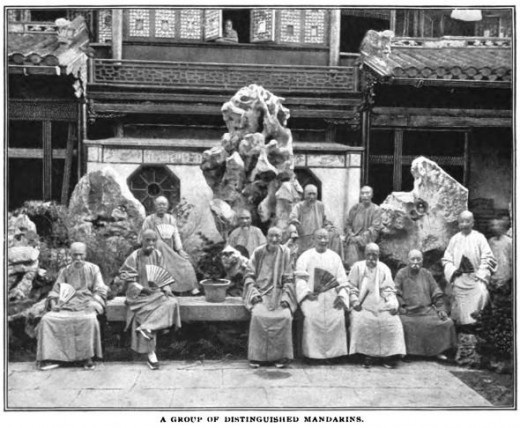
Upon this problem the mind of the Chinaman has concentrated itself, and for once he has succeeded most admirably. The Peking cart is set directly upon a stout and unbreakable axletree. The wheels are huge, thick affairs studded with spikes, often almost solid, for an ordinary spoke and tire would stand but little chance in a Peking street. The most comfortable place to ride on this cart is on the shaft, in close proximity to the mules' switching tails and treacherous hind feet; but one is willing to risk instant death at the heels of a mule after he has ridden for an hour or two with his feet doubled up under him on the hard board floor of a Peking cart, where every hole in the pavement and depression in the roadway calls attention anew to his aches and pains. Some of the diplomats of Peking have a little well in the bottom of their cart in which they can put their feet, which affords some relief from the cramped position necessitated by the ordinary cart: but such aristocratic conveniences and comforts are not looked upon with favor by the average Pekingese.
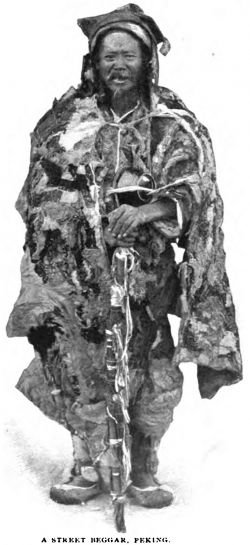
The Peking street mendicant rivals the American tramp for disheveled untidiness
Peking has its full quota of street mendicants, even more wretched looking than the worst American tramp. It is related that the Emperor of China used to be carried by his coolies across an old wooden bridge which was thickly infested with beggars. On one occasion the Emperor stopped his chair and commanded his retainers to seize all the beggars and strip them. Each was then presented with an entirely new suit of clothing. The discarded rags were searched, and enough money was found to pay for the erection of what is today one of the finest bridges in Peking. It is built entirely of marble.
Often one of these beggars makes a great show of rendering service to the passing traveler. He will dig a hole in the roadway over which the traveler must pass and then wait ostentatiously, shovel in hand, until the stranger's cart comes near. Then he throws a spoonful or two of dirt into the hole which he had previously made, and impudently demands backsheesh for the service rendered. If you regard the artifice as altogether too transparent, and refuse to satisfy his claims, the beggar will run after the car for a mile, shouting and swearing at the top of his voice.
In the summer, when the mud is dried up and the dust affords an excuse for officious service, the same beggar will stand with a little dish of water at the beginning of a steep ascent, and as the traveler approaches, sprinkle a few square feet of the roadway. His service may be entirely ineffectual and inadequate. The traveler may have to ride through clouds of dust for miles beyond, and the sparse drops of water may make little appreciable difference in the dust, even of the few inches of ground which it touches. But it is a service rendered, and according to all traditions must be paid for; and again the screaming, swearing coolie curses the hands and feet and eyes and ears of your grandmother and your great-grandmother's grandmother, unless you give him the largess that he demands. Fortunately, the common coin of China is of very little value. A dollar's worth of cash will go a long way toward satisfying the roadside beggar, and one can even take a considerable journey in China and met such impositions at every turn without becoming absolutely bankrupt.











